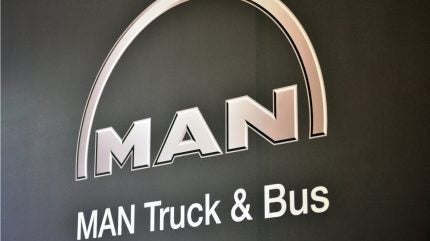
MAN Truck & Bus plans to reduce its German workforce by about 2,300 positions over the next ten years.
The German commercial vehicle manufacturer’s decision comes as a response to weak demand in its home truck market and rising cost pressures in the country.

Discover B2B Marketing That Performs
Combine business intelligence and editorial excellence to reach engaged professionals across 36 leading media platforms.
A company spokesperson, as reported by German news agency DPA, said the cuts would be achieved without redundancies with the headcount expected to fall gradually through retirements.
The bulk of the job reductions are planned at the manufacturer’s main plant in Munich, where around 1,300 positions are to go.
The Salzgitter site is expected to lose about 600 roles and the Nuremberg facility around 400.
The spokesperson said the company must “adapt to the continuing weakness of the truck market in Germany” and pointed to high energy and labour costs, combined with increased competition from Asian manufacturers, as weighing on profitability.
The representative added: “We are now entering a phase of high investment and need to generate sustained profits in order to expand our product portfolio.”
German metalworkers’ union IG Metall has pointed that moving production to a new plant in Poland operated by MAN’s parent company, Volkswagen’s Traton Group, will have consequences for German sites.
IG Metall representative Sybille Wankel said the plans “jeopardise the long-term existence of the main Munich plant”.
Wankel added: “No one is losing their job today, but in the long term, the decision means that the MAN truck of the future will be built in Poland and not in Munich.”
If all are produced in Poland and shipped to Munich merely for assembly, she said, it is “obvious” that the continuation of assembly work in Munich would eventually be questioned.
Volkswagen premium brand Audi also aims to cut 7,500 jobs by 2029 in areas such as administration and development to ensure the future competitiveness of its German facilities.
In March this year, Audi management and the works council signed an agreement as part of a broader strategy to bolster the brand’s resilience, technological advancement, and secure employment at its German sites.




